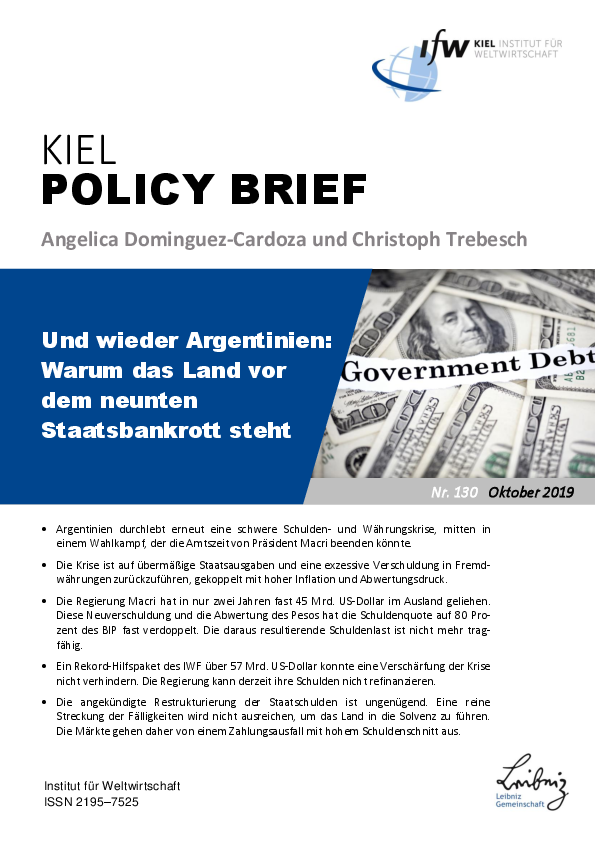Policy Article
Argentina, again: why the country is facing its 9th sovereign default (in German)
Authors
Publication Date
Key Words
Related Topics
Americas
Economic & Financial Crises
Emerging Markets & Developing Countries
Financial Markets
Argentina is again experiencing a severe debt and currency crisis in the middle of an election campaign that could end President Macri's term in office. The authors argue that the crisis is due to excessive government spending and excessive foreign currency debt, coupled with high inflation and depreciation pressures. The Macri government has borrowed nearly USD 45 billion abroad in just two years. This new debt and the devaluation of the peso have almost doubled the debt ratio to 80 percent of GDP. The resulting debt burden is no longer sustainable and even a record USD 57 billion aid package by the IMF could not prevent the crisis from worsening. The Argentine government is currently unable to refinance its debt. The authors conclude that the announced restructuring of government debt is insufficient. A mere stretching of the maturities is not sufficient to restore debt sustainability. The crisis and debt overhang are therefore likely to continue, potentially with high creditor losses.





